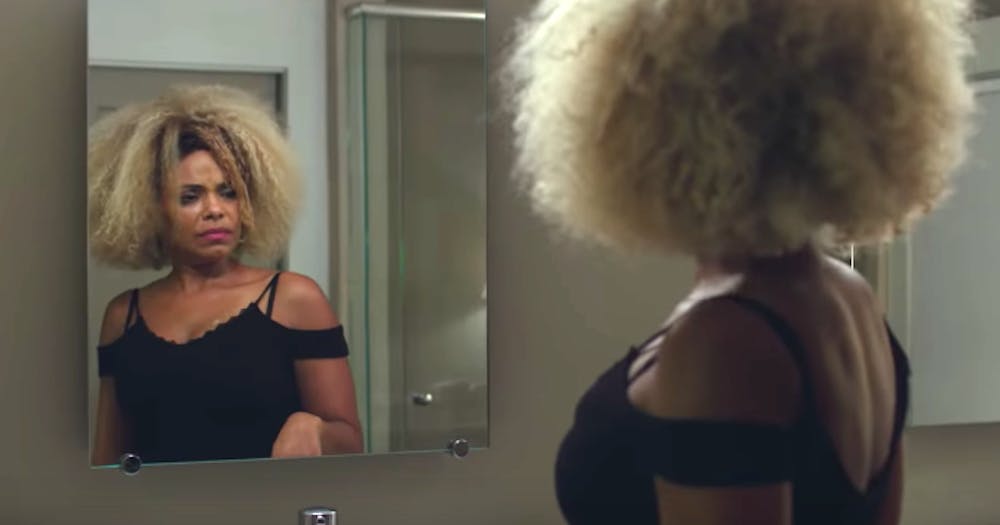By James Mercadante
Staff Writer
The new Netflix original film, “Nappily Ever After,” can teach viewers a lesson or two. It sparks a myriad of conversations around issues such as the ideologies of race, gender conventions, self-love and, most importantly, hair.

On the surface, Violet (Sanna Lathan) appears to have a perfect life. She holds a successful position as a beauty department marketer in an advertising company and she lives with her outrageously handsome boyfriend and British doctor, Clint (Ricky Whittle). Throughout her life, she maintains a painted face with a full set of straightened, relaxed hair. Her hair becomes a symbol of her collected demeanor. She never lets anyone see past the perfect person she wants people to perceive her as.
Things fall apart when she breaks up with Clint, who describes their relationship as “like being on a two-year first date.” She undergoes an identity crisis, and she starts questioning the value of her careful perfection.
Violet’s narrative is a delineation of what many black girls are subjected to — being pressured by family and society to maintain a certain presentation, in order to reflect ideals of their femininity.
The tension builds up until Violet reaches a breaking point, where she decides to shave her hair.
This particular scene of her shaving is one of the most climactic and beautiful moments in the movie. Lathan proves to be a substantial actress. She looks into the camera as if she’s looking into her own reflection, and authentically mirrors the reality of a mental breakdown. She goes from crying hysterically, to laughing, to going completely numb, which is chilling.
“To Build a Home” by The Cinematic Orchestra plays during this scene, which was an amazing choice. The song generates a heart-rending tone, and the movie’s soundtrack contained so many fitting songs to accentuate the story.
Violet’s journey of self-discovery begins with her hair, and what it has represented for her. She is finally forced to give up on her vanity and instead focus on other parts of herself.
Although predictable at times, this is a crucial film to watch. It sheds light on topics such as black female experiences, and it is truly gratifying to watch a film that teaches you that perfection is not a path toward a happy life, and that it’s perfectly OK to let your hair down.







